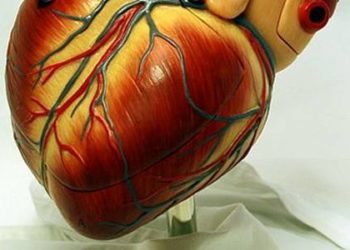High-dose oral semaglutide effectively glycemic control in patients with type 2 diabetes mellitus
1. HbA1c reduction was dose-dependent in the semaglutide group with the greatest change among patients on semaglutide 50 mg.
2. Higher doses of semaglutide were associated with more gastrointestinal symptoms.
Evidence Rating Level: 1 (Excellent)
Study Rundown: Maintaining glycemic control is an important goal for patients with type 2 diabetes. Currently, GLP-1 agonists, such as semaglutide, are used at low doses to achieve reductions in glucose levels and appetite-suppressant effects. However, the efficacy and safety concerns that may arise with higher doses of semaglutide remain unclear. This randomized controlled trial aimed to evaluate the safety and efficacy of high-dose semaglutide versus the standard 14 mg dose in adults with refractory type 2 diabetes. The primary outcome of this study was change in HbA1c from baseline to 52 weeks, while key secondary outcome was safety. According to study results, semaglutide 25 mg and 50 mg were superior to 14 mg in reducing HbA1c and body weight in adults with inadequately controlled type 2 diabetes. Although this study was well done, a major limitation was the relatively short follow-up period, which may not capture long-term safety and efficacy.
Click to read the study in The Lancet
Relevant Reading: Semaglutide and Cardiovascular Outcomes in Patients with Type 2 Diabetes
In-depth [randomized-controlled trial]: Between Jan 15 and Sept 29, 2021, 2294 patients were screened for eligibility across 177 sites in 14 countries. Included were patients with poorly controlled type 2 diabetes with HbA1c 8.0-10.5% and BMI ≥ 25.0 kg/m2. Altogether, 1606 patients (536 in semaglutide 14 mg, 535 in 25 mg, and 535 in 50 mg) were included in the final analysis. The primary outcome of A1c reduction was significantly greater in the semaglutide 25 mg (-1.8%, standard error [SE] 0.06; p=0.0006) and 50 mg (-2.0%, SE 0.06; p<0.0001) groups compared to semaglutide 14 mg (-1.5%, SE 0.05). With regard to the secondary outcome of safety, gastrointestinal disorders occurred more frequently with higher doses of semaglutide. Overall, findings from this study suggest that high doses of oral semaglutide are both safe and effective at controlling A1c and body weight in adults with poorly controlled type 2 diabetes.
Image: PD
©2023 2 Minute Medicine, Inc. All rights reserved. No works may be reproduced without expressed written consent from 2 Minute Medicine, Inc. Inquire about licensing here. No article should be construed as medical advice and is not intended as such by the authors or by 2 Minute Medicine, Inc.







